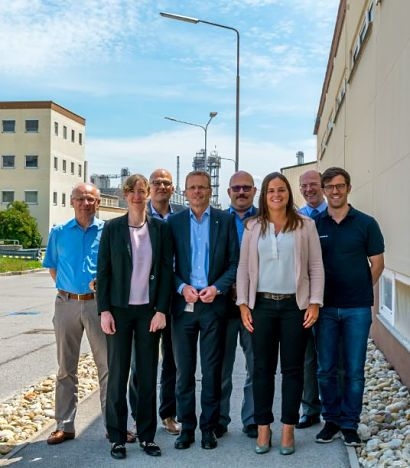
Borealis, a provider of innovative solutions in the fields of polyolefins, base chemicals and fertilisers, cut over 360,000 tons of CO2 annually, the equivalent of the greenhouse gas emissions of 80,000 cars driven for one year or a 747-jumbo jet flying non-stop for six days. Over the course of four years, DNV GL worked with Borealis to develop and implement an energy management system, compliant with the ISO 50001 standard, helping Borealis achieve ISO 50001 accreditation – the globally recognised energy management framework designed to help organisations manage and continually improve their energy performance, to reduce costs and emissions.
DNV GL used its proprietary rating protocol that provides a quantitative insight into the performance of a company’s energy management system, and an understanding of procedures and practices to ensure the analysis and planning of energy use.
With the help of DNV GL, Borealis has been able to bring together several different energy focused initiatives to meet its climate change mitigation strategy. By reducing the energy consumed by its operations, Borealis not only reduces emissions but also improves cost efficiency, enabling the company to invest in innovation and new projects to strengthen the entire energy network.
DNV GL’s team of energy management experts assessed how Borealis’ sites were functioning in relation to its energy performance and pinpointed its strengths, weaknesses and focus points, and reviewed the existing company procedures and updated them where necessary. This work was initially carried out at a few sample locations to gain a better understanding of how the company operated. These findings were then reviewed and necessary changes implemented. By engaging all Borealis’ internal stakeholders in an Energy Efficiency Engagement Tour throughout Europe, the company helped to strengthen Borealis’ energy culture, which increased awareness and encouraged all employees to reach the energy saving target of being 10 percent more energy efficient by 2020 compared to 2015.
“Achieving the ISO 50001 standard enables Borealis to meet their goal of becoming more energy efficient by continually reducing their energy use, energy costs and greenhouse gas emissions” said Prajeev Rasiah, Executive Vice President North Europe, Middle East & Africa at DNV GL. “Our partnership and longstanding relationship with Borealis is testament to the substantial environmental and economic savings that can be realised through dedicated expertise and technical support”.
Martijn van Koten, Executive Vice President Operations & HSE at Borealis added that the company has identified improving its energy efficiency and reducing emissions as a material issue and made it one of the three focus areas in its sustainability strategy. By working in partnership with DNV GL, Borealis is well on track to realise its ambitious target of becoming 10 percent more energy efficient by 2020.
Image: The DNV GL energy management team together with Borealis
For additional information:

